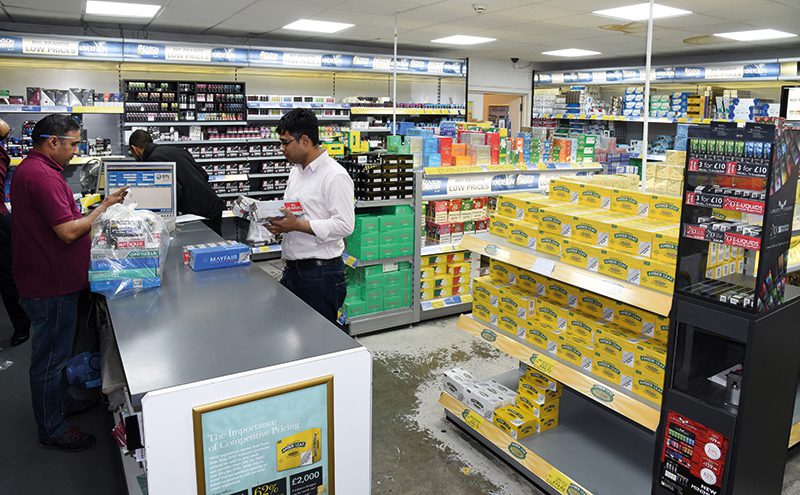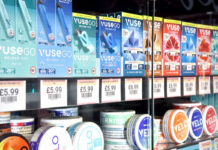Increase in retailer rewards found in wake of tobacco display ban

TOBACCO firms appear to have ramped up incentives and promotions following the introduction of tighter regulations on displays.
Researchers at the University of Stirling have claimed tobacco companies are offering rewards – such as cash bonuses, iPads and hospitality – to small businesses that attempt to boost sales of their brands.
The authors of the University of Stirling’s report interviewed 24 small independent tobacco retailers in Scotland, including convenience stores, newsagents and petrol stations, following the ban on open display of tobacco in April 2015.
The report claims retailers reported being offered and accepting a range of incentives in return for preferential sales practices.
Incentives were said to have been offered in exchange for retailers retaining a tobacco unit, maintaining stock availability, positioning products to maximise prominence, a push on sales, and trialling new stock and particular brand promotions.
The study, which was conducted by the Display team – a collaboration between the Universities of Stirling, St Andrews and Edinburgh, and ScotCen – followed on from reports of similar incentive-driven schemes in Australia and Canada, where display bans are also in place.
The Scottish team claims to have found incentives were often incorporated into existing partnership or loyalty schemes, with points redeemable against cash or gifts, including hospitality, iPads and business equipment.
Tobacco companies rely on retailers even more to promote tobacco, now that displays are covered up.
Some retailers also reported receiving a cash bonus for keeping a gantry in their store.
The report details how, as part of one promotion, retailers were told they would be visited by a mystery shopper who would ask for a rival brand.
Retailers who recommended another product that their partner company wished to promote would then receive a lump sum as a cash reward.
Of the 24 survey participants, 17 also reported that they were given assistance by tobacco companies before the ban took effect to adapt their gantries to comply with legislation.
Martine Stead, deputy director of the Institute of Social Marketing at the University of Stirling, commented on the findings: “The tobacco industry has, for many years, incentivised retailers to stock and sell tobacco, and to display particular brands prominently on their shelves.
“We might have expected that these practices would decline following the ban on open displays because customers can no longer see products. However our study suggests that is not the case.
“The tobacco companies rely on retailers even more to promote tobacco, now that displays are covered up.
“They are still offering them payments and rewards, including substantial lump sums to make verbal recommendations to customers to try a particular brand,” she said.
Interviews for the research paper, ‘Tobacco companies’ use of retailer incentives after a ban on point-of-sale tobacco displays in Scotland’, were conducted in four Scottish communities in June and July 2015 and over the same period in 2016.
The team behind the study acknowledged that the sample was small, but suggested “the strategies identified in our study are likely to be adopted in other countries with, or planning to implement, a display ban”.





















